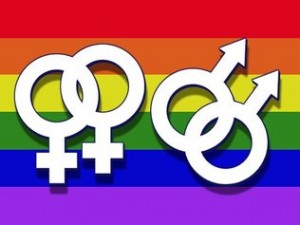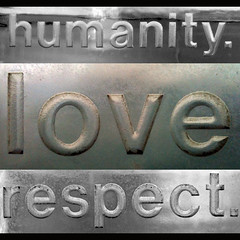Chapter 1 of Harris’s book, Raised Right: How I Untangled My Faith From Politics, bears the title “Flesh and Blood.” I assume it was chosen for the chapters attempt to show the need to see not issues, but people. Harris starts the chapter by describing a scene where she, her parents, and her younger siblings picketed an abortion clinic together. After describing that scene, she speaks of her past, offering the following insight:
I had been picketing since before I could walk.
Understanding that statement and its significance reveals a great deal about those of us who were raised as conservative Christians. In a sense, I think it makes it easier to understand us — whether speaking of those of us whose politics and/or faith have changed or those who remain a part of the movement — as flesh and blood people. Our understanding of the religio-political views we were meant to adhere to was formed very early in our lives.
As I mentioned when I
announced I’d be reviewing this book, I was not raised with the direct activism as Harris. I never picketed before I could walk, or even after. However, the messages about what I was supposed to believe started when I was young. Perhaps nothing about the political topics that seem to make up most of the Religious Right’s platform, but there were still those subtle messages that set the stage for me to understand what “good people” believed and did versus what “bad people” said and did.
Subtle is a key-word here. While Harris’s own childhood experiences were direct and explicit, my own (and I suspect others’) was more subtle. Things got implied more than said. Or certain things were said and I inferred. To be honest, I don’t remember ever hearing a sermon about the evils of homosexuality. I’m not even sure where I first learned that homosexuality was supposed to be wrong, or even that there was such a thing as homosexuality.[1] But I certainly picked that message up from somewhere.
When we read Old Testament passages like the story of Rahab and I asked my mom what a prostitute was, she said, “Women that men paid to act like their wives,” which conjured confusing pictures of paid cooks and housekeepers. When I asked how the single mom in our church had a baby without a husband, she said the mom “acted like she was married.” Apparently, I was too young to know how people made babies, but not too young to know how they killed them.
Harris’s statement above is something I can totally appreciate. Sex was something that simply was not discussed. I remember spending the night with one (male) cousin and sharing a bed and wondering if it was okay, because that’s something only a husband and wife do. I did not understand there was more to being a husband and wife (or lovers) than merely sharing a bed for actual sleep.
I don’t think my own parents meant to keep me naive about sex. Looking back, I think that if I had asked about it, either of them would have answered me honestly. They simply weren’t going to volunteer the information.
However “sinful sex” or the consequences of it did tend to get a bit more attention, from other sources if not directly from my parents. And that strikes me as quite common in conservative circles. In many ways, the discussion of sexual sin[2] seems to be the only discussion of sex that goes on in many such environments. This tends to lead to a rather grim view of sex in general. I know I tended to think of it as a mostly dirty thing, despite my eighth grade science teacher’s occasional declaration to the contrary — a declaration he made the few times the subject came up in his classroom at all.
Harris goes on to describe a protest held in front of New York Governor Paterson’s Manhattan office which she covered as a journalist. This protest took place when the state’s same sex marriage legislation was waiting to be approved by the State Senate. Harris describes the shouting, the anger, the jeering, and the rebukes offered up during the protest.
As the crowd yelled, I would at times forget that these were supposed to be prayers until I would catch an “Almighty God!” or “Lord we pray!”
I have seen these kinds of public “prayers” before. In fact, I recall participating in a few of them during my college years. The ones I was involved in were not as heated, aggressive, or condemning as the ones that Harris describes in her book, but they were surely sham prayers meant for public piety and acts of showing others our (my) own superiority. They were the same in spirit, even if not the same in degree or volume. I think Harris remarks upon this practice when she writes:
I couldn’t help but think of the kind of ostentatious prayers Jesus chided: “And when you pray, do not be like the hypocrites, for they love to pray standing in the synagogues and on the street corners to be seen by men.” He must have meant, Pray to Me and not to the cameras. When you pray, talk to Me.
Harris describes talking about the importance of love and her own struggle with the idea that these protestors would insist that they “loved” the homosexuals and that they merely wanted to help them “out of their sin.” She thought of how they would compare themselves to a parent correcting a child. Harris then goes on to share her own revelation in response to that claim:
Then I realized why these efforts at love sounded hollow — because this love was not the way I experienced love every day. Even setting aside the arrogance suggested by viewing all other sinners as children and saved sinners as the world’s in loco parentis, I know my parents love me because they sacrificed to feed and clothe me every day. In the end that burden of labor and sacrifice is what gives them any right to be heard or believed when they say “I love you” after they say “you’re wrong.”
I don’t believe I’ve heard anyone express this as eloquently as Harris did here: If you want to correct people out of “love,” then you first need to show those same people love in other, tangible and edifying ways. That may mean meeting other needs they might have — which might actually mean learning what those needs are in the first place. That’s something that many conservative Christians are not good at. I know I wasn’t.
Unfortunately, my former self and many conservative Christians come to “sinners” with pre-conceived notions about what they are like and what their needs are. And they act on those pre-conceived notions, never questioning their accuracy or relevance. This often leads to offering help that is unneeded, unhelpful, and even insulting. And then the “helpful” person wonders why they get such a negative response. Their premise for action is completely wrong.
The problem is, learning people’s real needs and responding to them can get messy. There are rarely prepackaged slogans, ready-made signs, or “witnessing tools” that covers those needs. And that can be scary. But I think that’s exactly what Harris is calling for in this chapter:
Unless you are smuggling soup to the Jews in your attic, I think a political act can’t be an act of love. It can be a good act, even noble and heroic, but love is not something that takes place behind a barricade; it happens in the breaking of bread and the passing of cups. Political love is theoretical, directed at some vague “humanity,” and Jesus didn’t say to love humanity, but to love your neighbor.
May God bless her for it.
[1] I do, however, remember when I first learned what it meant for two guys to “screw.” It was during my ninth grade English class, and a classmate explained it to me in a tone of complete and obvious disgust.
[2] Let’s face it, too: The two biggest issues in conservative Christian politics are still homosexuality and abortion, meaning it’s mostly — or even all — about sex.
Other posts in the Raised Right series:
 Right now, Congress is working on legislation for immigration reform. Some people have had this “radical” idea that such reform should also speak to the fact that in some parts of our country, same-sex couples can legally get married. After all, our laws already take people’s marriage to different-sex couples into account when making immigration decisions (e.g. we generally let an immigrant who is married to a citizen stay in the country), so it only makes sense to give married same-sex couples the same kind of consideration.
Right now, Congress is working on legislation for immigration reform. Some people have had this “radical” idea that such reform should also speak to the fact that in some parts of our country, same-sex couples can legally get married. After all, our laws already take people’s marriage to different-sex couples into account when making immigration decisions (e.g. we generally let an immigrant who is married to a citizen stay in the country), so it only makes sense to give married same-sex couples the same kind of consideration.





